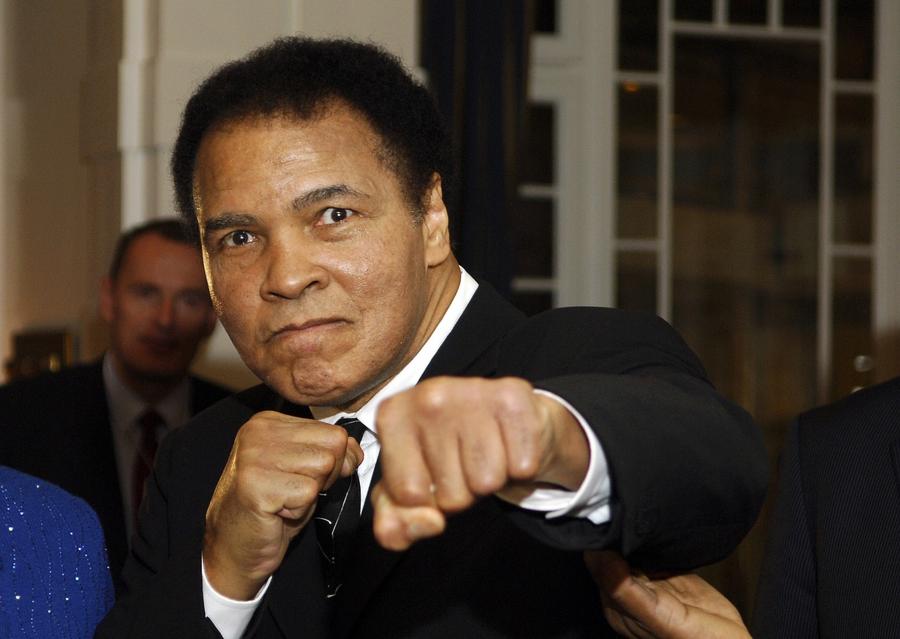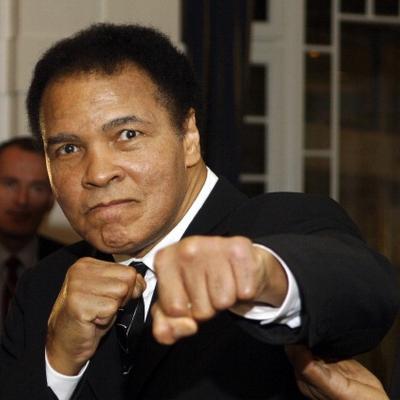Muhammad Ali at a Glance
Muhammad Ali: The Life, Career, and Net Worth of a Boxing Legend
Early Life and Introduction
Muhammad Ali, born Cassius Marcellus Clay Jr., was more than just a boxer; he was a cultural icon, a humanitarian, and a symbol of resistance. This article delves into the life and career of this extraordinary individual, exploring his remarkable journey from a young boy in Louisville, Kentucky, to one of the most celebrated athletes in history. His story is a testament to his unparalleled skill, unwavering conviction, and lasting impact on the world.
Early Career and Amateur Success
Ali’s journey began at the age of 12, after his bicycle was stolen. Enraged, he vowed to find the thief and, in the process, encountered police officer Joe E. Martin, who also trained boxers. Martin recognized Ali’s potential and encouraged him to channel his anger into the sport. This chance encounter set the stage for Ali’s illustrious career. He began training with coach Fred Stoner, winning six Kentucky Golden Gloves, an Amateur Athletic Junior Title, and two National Golden Gloves titles. His amateur record was an impressive 100 wins and 5 losses, culminating in a gold medal at the 1960 Rome Olympics in the light heavyweight division. This early success laid a strong foundation for his future dominance in the professional ranks.
Professional Boxing Career and Defining Moments
After the Olympics, Ali turned professional and quickly made a name for himself with his unique boxing style and charisma. He was known for his quick footwork, defensive prowess, and showmanship. Instead of the traditional high-guard, Ali utilized his speed and agility to avoid punches, a tactic that baffled and frustrated his opponents. He became famous for predicting the round in which he would knock out his opponents, often proving correct. Ali’s rise to prominence was marked by his victory over Sonny Liston in 1964, at the age of 22, making him the youngest fighter to ever take the heavyweight title from a reigning champion.
This victory marked the start of Ali’s ascent, punctuated by historic fights against Joe Frazier, George Foreman, and Larry Holmes. He faced Frazier three times, with their epic battles becoming part of boxing lore. The ‘Rumble in the Jungle’ against George Foreman in Zaire (now the Democratic Republic of the Congo) saw Ali, against the odds, regain the heavyweight title in an unforgettable performance. These fights, along with his battles with Larry Holmes, solidified his status as a boxing legend, captivating audiences and transcending the sport itself. Ali was known for his incredible ring presence and his skill in the ring, but he was also known for his activism.
Muhammad Ali’s Net Worth and Career Earnings
At the time of his death on June 4, 2016, Muhammad Ali’s net worth was estimated at $50 million. During his prime, he was one of the highest-paid athletes in the world. His financial success stemmed not only from his boxing career, but also from his name and image rights. In 2006, Ali sold these rights for a staggering $50 million, while retaining a 20% stake in licensing. This stake generated approximately $7 million annually.
Ali’s career earnings reflect his status as a top earner in sports history. While Gene Tunney earned the first million-dollar payday for a boxing match, Ali soon broke his record. He earned $2.5 million in 1971 for his first fight against Joe Frazier. That’s the same as $15 million today. In 1974, he took home $5.45 million for the fight against George Foreman, equivalent to $26 million today. The biggest payday of his career was in 1980 when he earned $7.9 million to fight Larry Holmes. Interestingly, when adjusted for inflation, $7.9 million in 1980 is equal to $22 million today, which technically makes Ali’s $5.45 million 1974 check the biggest payday of his career.
Ali’s Legacy Outside the Ring
Beyond his boxing prowess, Ali was a prominent figure in the civil rights movement. In 1964, he joined the Nation of Islam and changed his name from Cassius Clay. His refusal to be drafted into the Vietnam War, citing his religious beliefs, led to a controversial and pivotal moment. Ali was stripped of his titles, but he appealed the decision to the Supreme Court, which overturned his conviction in 1971. His stance resonated with civil rights activists, including Al Sharpton, who praised Ali’s bravery. In 1970, he was honored with the Martin Luther King Award by civil rights leader Ralph Abernathy. Coretta Scott King further recognized Ali as a ‘champion of justice, peace, and unity.’
Ali’s influence extended to the arts and philanthropy. He was a talented musician, receiving two Grammy nominations. He also acted in films and wrote two autobiographies. His philanthropic efforts were considerable. Ali actively campaigned for Parkinson’s Syndrome awareness and, in 1996, had the honor of lighting the Olympic flame. He was a three-time lineal heavyweight champion, and he is consistently ranked as one of the greatest heavyweight champions of all time.

(ERIC FEFERBERG/AFP via Getty Images)
Personal Life and Family
Ali’s personal life was marked by four marriages. His first marriage was to Sonji Roi in August 1964, which ended in January 1966. His marriage to Belinda Boyd in August 1967 produced four children. He had children with Wanda Bolton, and was married to Veronica Porche in 1977, with whom he had two children. He later married Yolanda Williams, a close friend since 1964, with whom he adopted a son. One of Ali’s daughters, Laila Ali, followed in her father’s footsteps, becoming a professional boxer from 1999 to 2007.
/**/
Conclusion
Muhammad Ali’s impact extends far beyond the boxing ring. His skill, charisma, and commitment to his beliefs transformed him into a global icon. From his early life in Louisville to his championship fights and his stance on social justice, Ali left an indelible mark on the world. He remains an inspiration for athletes, activists, and anyone striving for greatness, reminding us that true champions are defined not only by their achievements but also by their character and principles.
Career Earnings
| Source / Title | Amount |
|---|---|
| Fort Apache | $110 Thousand |
| Since You Went Away | $2.2 Thousand/week |
| Stand Up and Cheer! | $75/week |
| Pardon My Pups | $1 Thousand/week |
| Kid in Hollywood | $150/week |
| Red Haired Alibi | $50 |
| Total Earnings | $113.5 Thousand |

